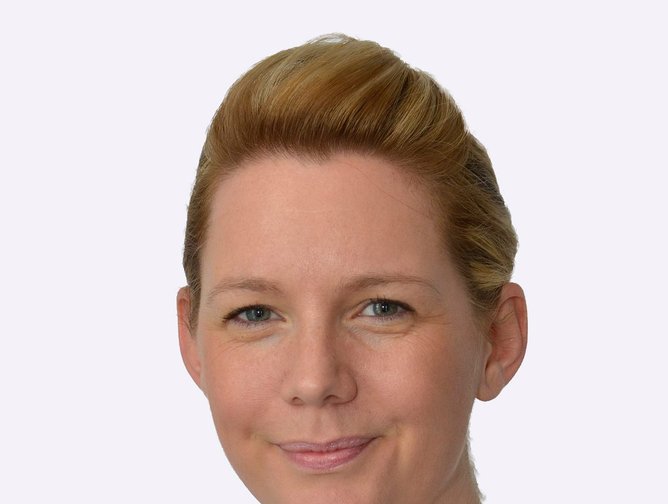Enabling Investment in Digital and AI-Driven Medical Imaging

AI has the potential to radically alter the field of healthcare, and it’s already enhancing medical imaging. Penny Pinnock, Business Development Manager at Siemens Financial Services (SFS), explores how more efficient and accurate technology is contributing to improved healthcare outcomes and helping private hospital groups cope with supporting NHS backlog.
How is AI being used in healthcare?
Thanks to AI, diagnostic imaging is among the most rapidly advancing areas of healthcare equipment. New applications and models are emerging regularly to improve diagnoses:
- preliminary results from a major trial in Sweden showed the technology could almost halve the human workload in breast cancer screenings
- research from Seoul National University suggested AI models could improve lung cancer diagnoses in x-ray and CT scans as long as high-diagnostic-performance technologies are used.
As part of its long-term strategy for improving patient experience and healthcare delivery, the NHS is planning to roll out greater use of AI. It is widely understood that underfunding and limited resources have hampered NHS hospitals from investing in these technologies to date but they are still seen as integral to speeding up patient treatment while boosting quality of care. Where technology has been deployed, reports show a positive impact on outcomes for patients. For example, in some cases AI helped to halve treatment times for stroke victims with faster diagnoses leading to triple the chance of patients living independently after a stroke.
How is the private sector impacting AI development in healthcare?
It is reported that Al in diagnostics is one of the fastest growing medtech markets in the world with a 32.5% compound annual growth rate (CAGR). It therefore represents a serious investment challenge to those healthcare providers — whether public or private — looking to adopt newer technologies and improve diagnostic processes.
Recently the private sector has been stepping in to support NHS backlogs, particularly for diagnostic care where increased capacity and facilities are urgently required. With the expected influx of patients, private sector hospitals too will need to invest in the most efficient and effective technologies to keep pace with demand. But given the costs, even private sector Chief Financial Officers (CFOs) must strategically plan investment to protect cash flow, while ensuring the best possible care. This is where specialist finance is increasingly helping to bridge the gap.
How can flexible finance solutions support AI development?
Access to the latest diagnostic equipment and technology is crucial in order for healthcare organisations to keep pace with digital transformation and ensure the delivery of improved patient care. However, at a time when healthcare funding is under pressure across public and private spheres, investing in this new diagnostic imaging equipment may feel out of reach.
Specialist technology finance solutions such as transition finance, technology upgrade and pay-for-outcomes options are gaining increasing acceptance as a means of enabling cost-effective investments in new technologies. Pay-for-outcomes arrangements are increasingly popular, such as lease agreements which deliver fixed monthly payments over the financing period, or Managed Service Contract arrangements that guarantee an agreed level of equipment uptime.
Such financing solutions spread the cost of the technology over an agreed financing period. Finance payments are arranged to align with the expected benefits that result from the use of the technology, such as improved operational efficiency. By removing the need for a large initial outlay, finance arrangements like these can help improve cash flow and working capital.

Healthcare financiers who have an in-depth understanding of healthcare technology and its applications can provide these tailored financing packages. Siemens Financial Services (SFS) provides cost effective financing solutions for a wide variety of medical equipment and technology, enabling healthcare organisations to acquire the solutions they need without having to commit precious capital budgets.
The collaborative work between SFS and Siemens Healthineers provides perhaps the best illustration of the sheer range of integrated financing solutions available from specialist providers in today’s marketplace. This range of solutions includes flexible leasing arrangements enabling the acquisition of particular equipment, through to enterprise-wide arrangements where Siemens Healthineers provides data driven consultancy to drive sustainable improvement, enabling technology, training, maintenance, support, technical staff (where required), and even facility design and associated building works – all wrapped up into a single, transparent annual charge.
What is the future of financing AI development in healthcare?
Digitally-driven technologies like those using AI applications have the potential to level-up healthcare delivery. Faster treatment and better outcomes are wins for all involved but can only be achieved with carefully planned investment.
Specialist finance solutions are helping healthcare organisations acquire state-of-the-art technology without risking cash flow. With arrangements flexed to suit the cash flow profile and growth plans of each healthcare organisation, care providers can gain access to innovative technology solutions and deliver improved services sooner.
**************
Make sure you check out the latest industry news and insights at Healthcare Digital and also sign up to our global conference series - Tech & AI LIVE 2024
**************
Healthcare Digital is a BizClik brand
*************






